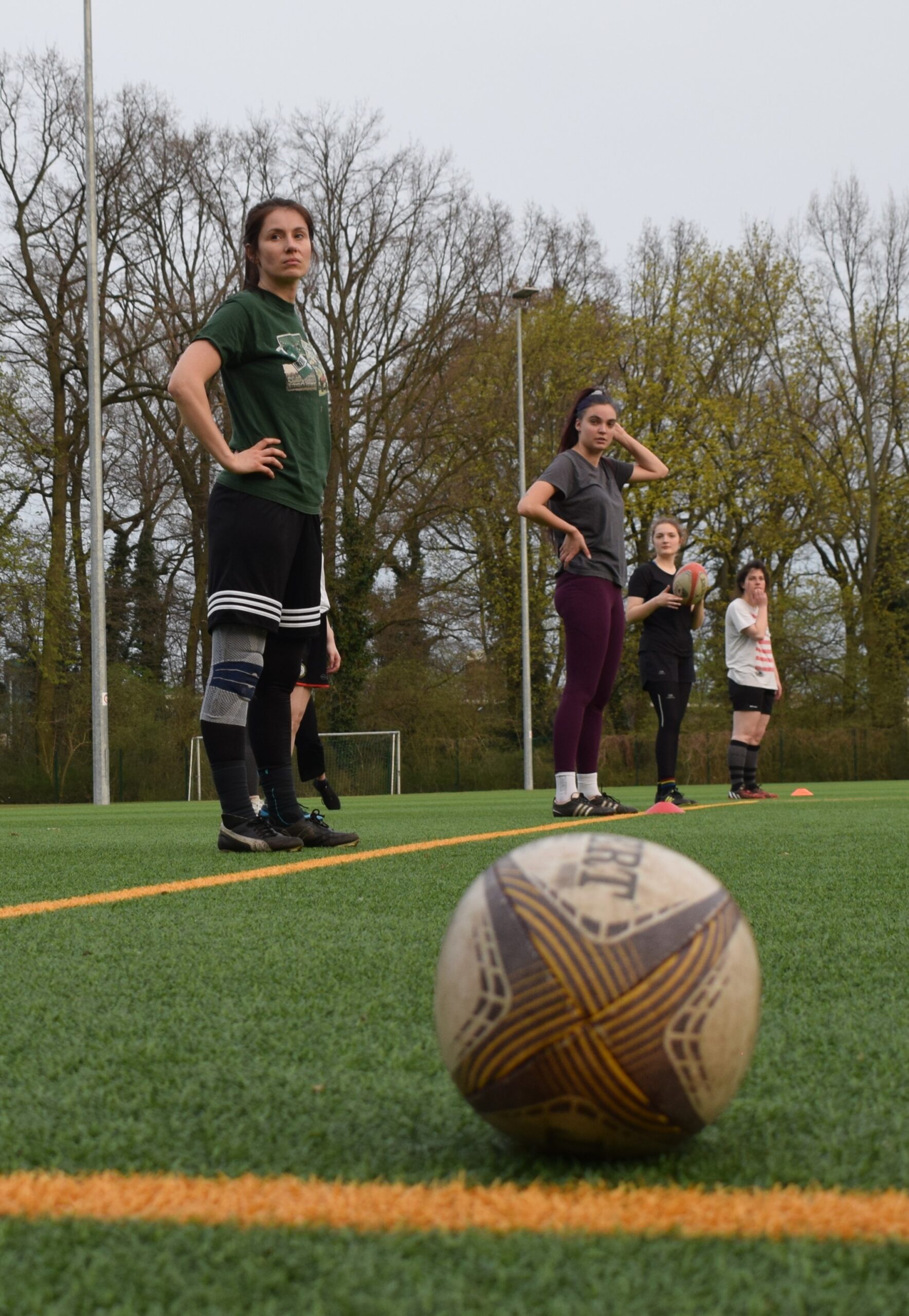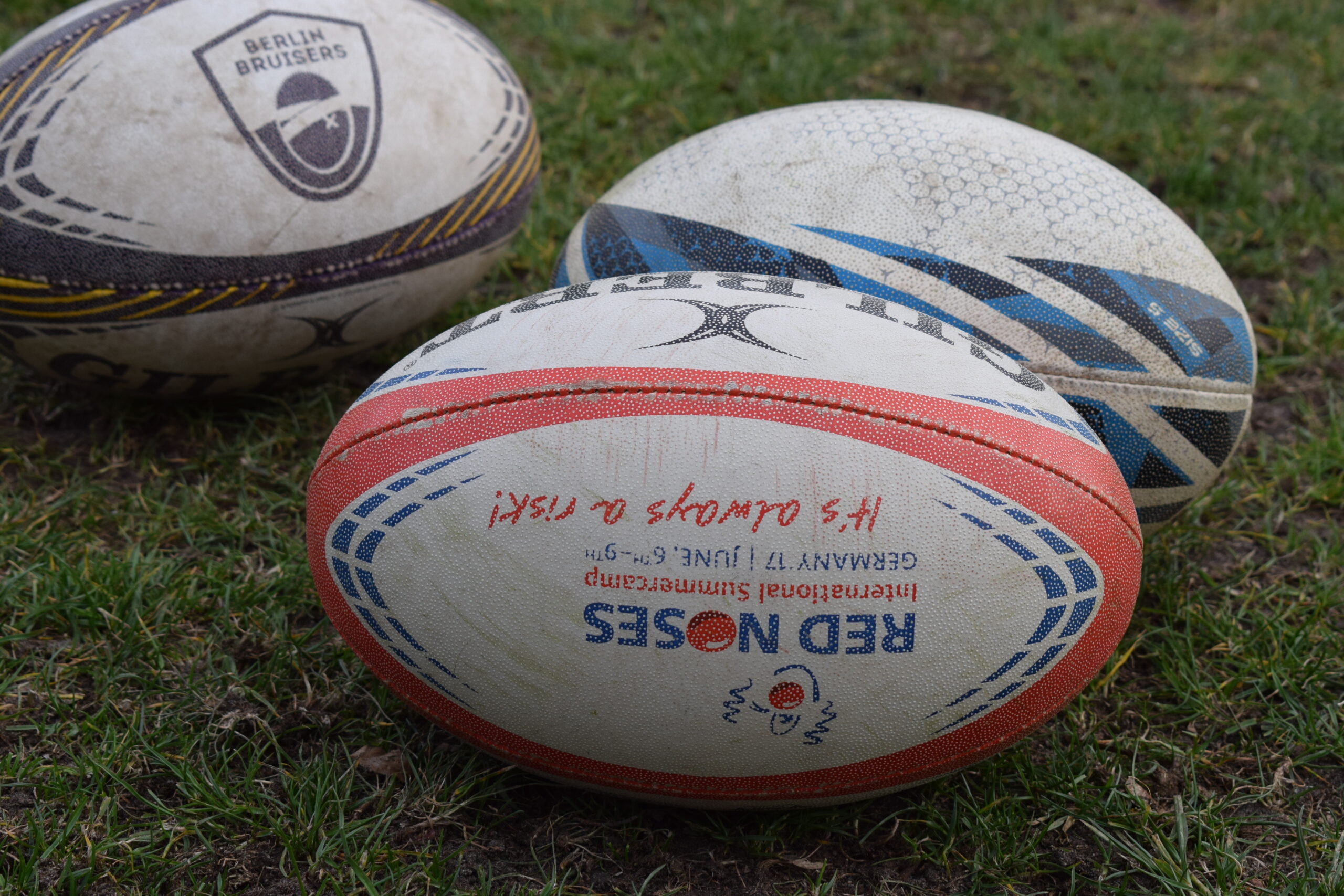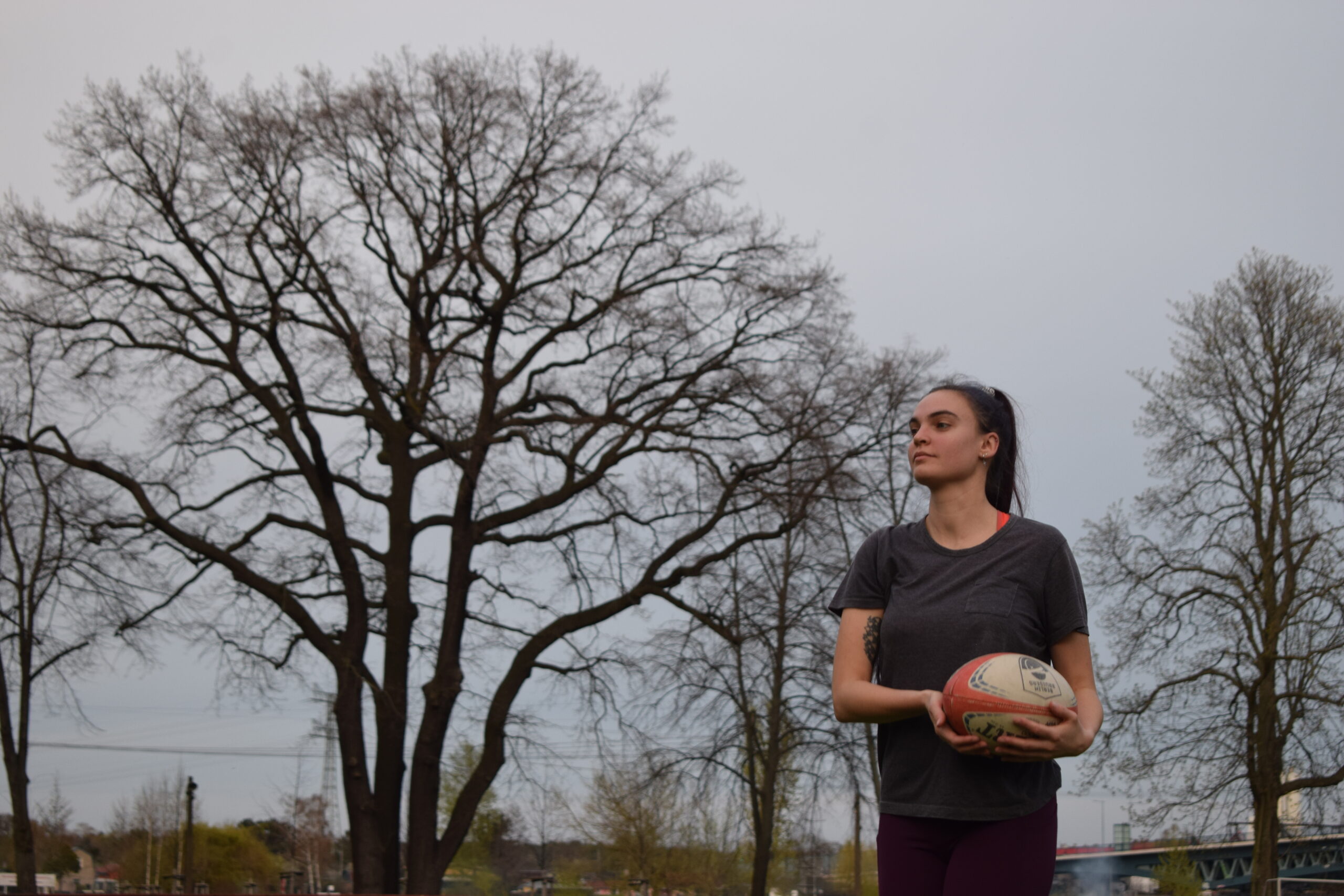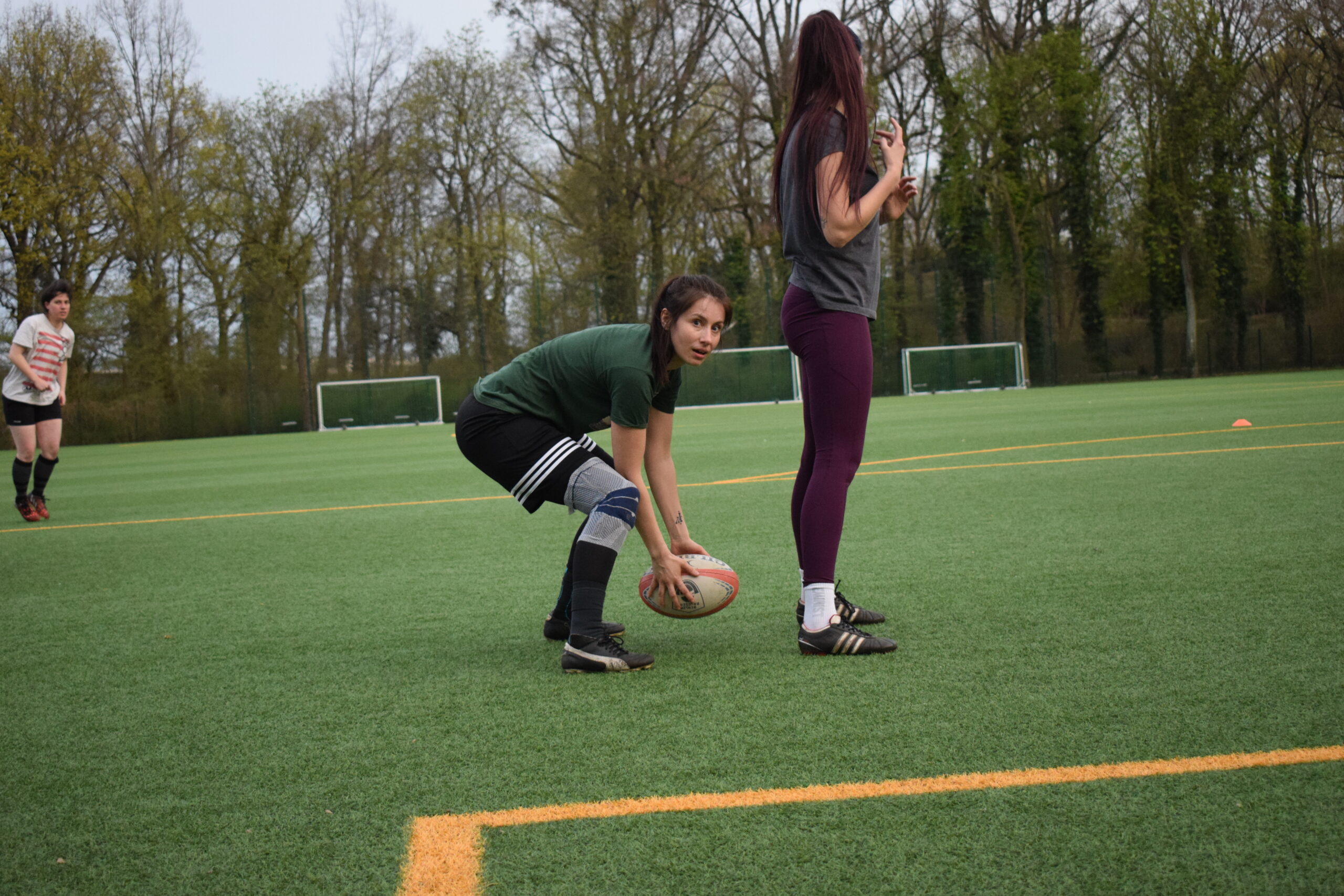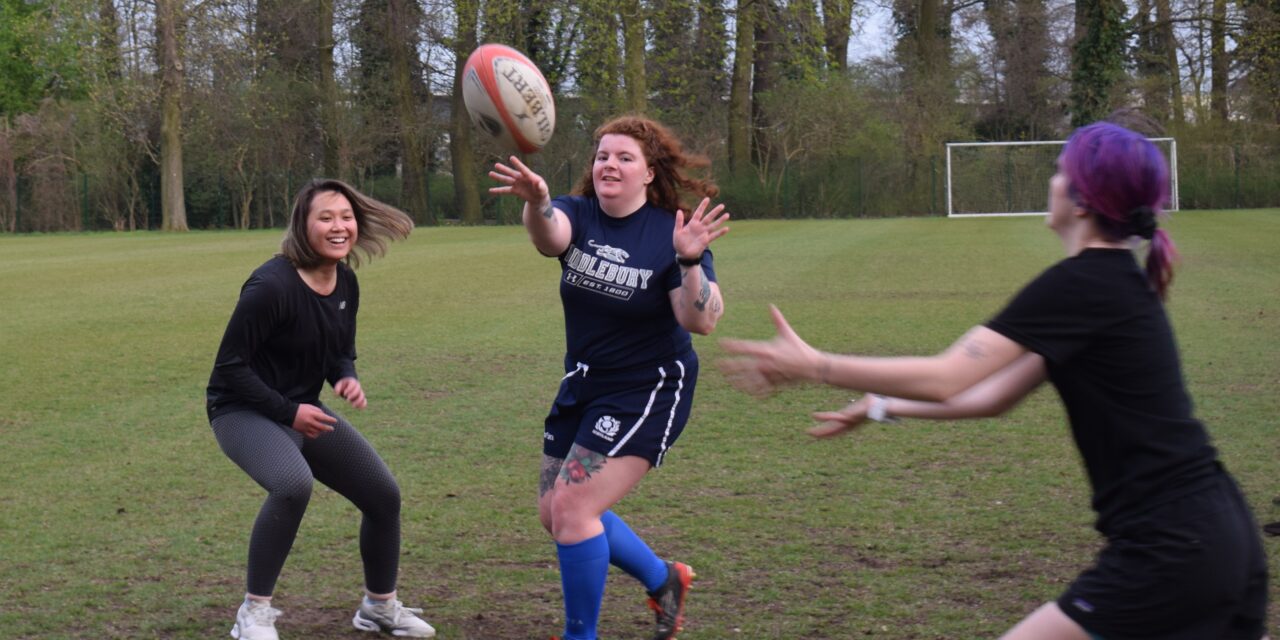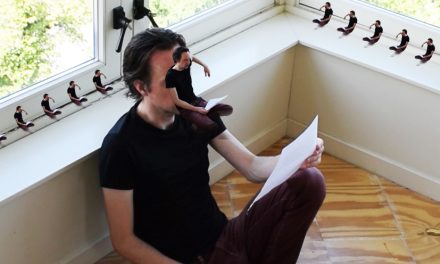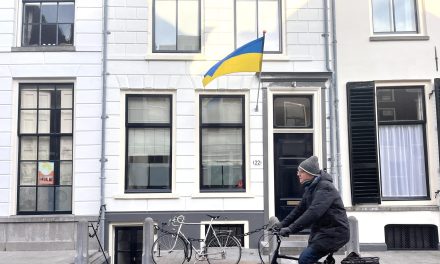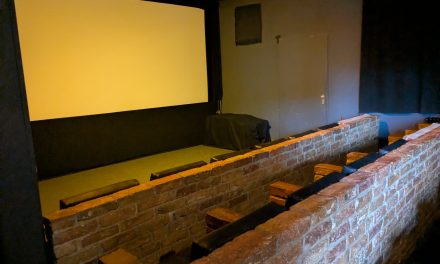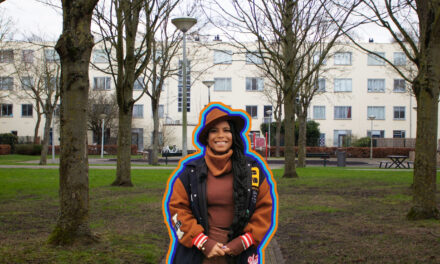Running till your lungs start to burn, tossing an oval ball and a lot of yelling. Rugby, a sport that is frequently seen as rough and manly, may not be the first thing you match with inclusivity. Still, in Berlin inclusive rugby is put into action with a brand-new FLINTA* team.
[embed]https://soundcloud.com/user-401785421/flinta-item-mixdown/s-FLwF4QLD8y2?utm_source=clipboard&utm_medium=text&utm_campaign=social_sharing[/embed]A place where you can totally, unapologetically be yourself while playing rugby: that is what the club The Berlin Bruisers is trying to create. They do this for example with the FLINTA* team. A short extra lesson in German acronyms, FLINTA* stands for:
F: Frauen/Women
L: Lesben/Lesbians
I: Intergeschlechtliche Personen/Intersex People
N: Nicht-binäre/Non-binary people (enby for short)
T: Trans* Personen (trans Männer und trans Frauen) oder Trans*gender/Trans* people (trans men and trans women) or trans*gender
A: Agender (people who do not identify themselves by gender)
*: Nicht explizit erwähnte Personen/Persons not explicitly mentioned, who do not fit into one of the above-mentioned sexual orientations or gender identities.
This may seem like a little bit of a mouthful, but according to initiator and board member Rachel (she/they) this acronym was chosen for a reason. “You can say that you’re inclusive but until you make it very explicit, there will always be the predominant identities that continue to hold that space of power,” she explains. “So you can say that your women’s team is inclusive, that people who are for example trans or non-binary are welcome to come and play, but it will still be a team that is explicitly a women’s place.” Within this concept it is important that identities are specifically named. “Intentionally and explicitly saying: ‘This space is for you’, starts a little work of bringing some level of equity to all of our divers and different identities,” Rachel says.
While labelling groups can sometimes have a negative effect, it can also make people feel acknowledged. In order to understand people’s experiences and to best advocate LGBTQ+ people there should be a more intersectional approach, as is stated in the book Feminist Applied Sport Psychology by Leeja Carter. This research shows that acknowledging all parts of someone’s identity, for example race, gender, sexual preference, is important for their experiences within a team. Using this way of thinking can make people feel seen and understood.
“Berlin is not a monolith, but wildly diverse”
Berlin is known as a very inclusive city with special clubs, shops, comedy shows and other venues for LGBTQ+ people. In 2019 it was even labelled as number eighteen on the list of most inclusive cities in the world by CEOworld Magazine. Despite this reputation, Rachel has a few examples of when Berlin didn’t feel as inclusive to her: “I have personally had people yell at me when I was holding the hand of someone of the same gender or who appeared that way. And there have been people in our rugby club who have been attacked for wearing dresses when they were presenting male. So, while there a spaces that are super inclusive, it is still not necessarily a wildly save place to be.” According to her there is still a lot of space for improvement. “If you look at the whole world, we are up there. But I think that allowing that to blind you to places that still need improvement, is a real danger. Berlin is not a monolith, Berlin is a wildly diverse city. There are people who don’t have experience with queer people and don’t know why it is important to introduce yourself with your pronouns, use the correct pronouns for somebody or have gender neutral toilets. Those are all things we need to be very intentional and thoughtful about in order to make sure that we have an inclusive city.”
“If people are having a fun time, we are successful”
Rugby is a sport that includes a lot of touching. For now the teams does this by tagging people instead of full contact. “We do offer additional contact training for people who would like to play full contact. But is never going to be a requirement for playing with the club or being part of the club.” For now the club offers trainings that are mostly an introduction to rugby, without any requirements of abilities or experience.
The group is still small, but Rachel doesn’t measure the success of the group in numbers: “The number of people definitely varies, but that is also a part of it. If people are having a fun time, no matter how many people are there, then we’re successful.”
